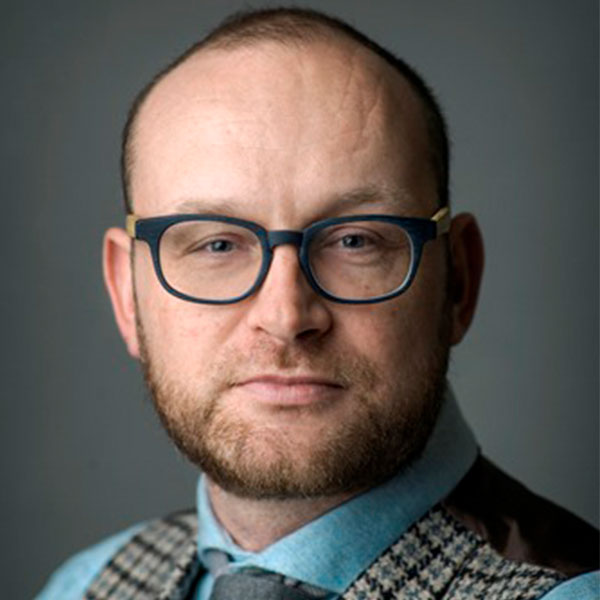Smells like team spirit

Sebastian Groes, Professor in English Literature, blogs about how his recent research project has put the Black Country back on the map by exploring the link between smell and memory.
For the English Language and Literature submission to REF2021, my colleague in Creative Writing, Dr R. M. Francis and I submitted the Impact Case Study Writing the Black Country: Changing perceptions and reimagining marginalised communities through cultural networking and public engagement.
Our aim was to bring regional Black Country research to international prominence to help the public reconsider negative prejudices in their opinions of the West Midlands. Together with a network of collaborators and partners, the Centre for Transnational and Transcultural Research opens up imaginative, positive futures for the Black Country.
At the heart of our strategy is critical-creative thinking. We promote our literary research – including novels by Dr Lisa Blower and R. M. Francis, but also place-based research by Dr Aidan Byrne – at literary festivals around the country, for instance. But we also developed a unique project that explores the role of the senses – and especially smell – in the cultural memory of the Black Country. Francis, and our colleague in Psychology Dr Tom Mercer and I organised the ‘Snidge Scrumpin’ experiments in 2018 and 2019 as well as the Making Sense of the Black Country walk for the Being Human Festival.
The research was a great hit! People loved to smell and identify (well, try to – humans are not good at naming smells) odours from a specific part of the world. There was something dangerous, exciting about sticking your nose in small tubs with carefully prepared (artificial) smells. But people also loved it because it created a new way is understanding their world – sniffing your familiar house and town out with your nose. It was a completely new way of understanding your life.
We took the experiments from the West Midlands to London, Amsterdam and then Romania – and now that the pandemic is over, we’re scheduled to do more smell & identify experiments in Ireland.
A local experiment soon gained an international reputation, which Francis and I set down in our book Smell, Memory, and Literature and in the Black Country (2021), a collection of creative writing and critical essays. Our research impacted on the local population, which saw itself in a new, positive light. In addition, we also stimulated cultural tourism and the quality of the tourist experience of visitors of the Black Country Living Museum as we informed professionals’ curation, the conceptualisation of the Museum’s spaces as well as programming practices. We were invited to various events to disseminate our findings and inform practice, for instance, to the UK Fragrance Forum, and an international event bringing together people from the perfume industry.
Speaking of the pandemic, we soon realised, as people were losing their sense of smell when they got infected by the coronavirus, that our aim to promote the importance of smell had a whole new significance. Covid infections (especially in the case of the first few variants) is associated with temporary anosmia, which is the phenomenon whereby people lose their sense of smell. The impact of anosmia is associated with depression and a sense of isolation and you feel increasingly disconnected from your food and your familiar surroundings. Losing your sense of smell is extremely alienating, as many of us now know. Therefore, together with a number of academic and industry partners, we are now developing a nationwide Olfactory Map that aims to promote smell awareness and help people to regain their sense of smell via a new olfactory training programme.
It's an example of how a modest idea can start to lead its own life and suddenly turn into a major project that is of major importance to the world. I’ve been very proud to see ‘Snidge Scrumpin’ put University of Wolverhampton’s research – as well as this increasingly vibrant, creative part of the United Kingdom – on the international map.
You can find out more about how the School of Humanities’ research impacts the world at our Research Centre’s website and on our YouTube channel.
For more information please contact the Corporate Communications Team.


/prod01/wlvacuk/media/departments/digital-content-and-communications/images-2024/Diane-Spencer-(Teaser-image).jpg)
/prod01/wlvacuk/media/departments/digital-content-and-communications/images-18-19/220325-Engineers_teach_thumbail.jpg)
/prod01/wlvacuk/media/departments/digital-content-and-communications/images-2024/240509-Menopause-Research-Resized.jpg)
/prod01/wlvacuk/media/departments/digital-content-and-communications/images/Maria-Serria-(teaser-image).jpg)
/prod01/wlvacuk/media/departments/digital-content-and-communications/images-2024/241014-Cyber4ME-Project-Resized.jpg)
/prod01/wlvacuk/media/departments/digital-content-and-communications/images-2024/240315-Research-Resized.jpg)
/prod01/wlvacuk/media/departments/digital-content-and-communications/images-2024/BDA-group-photo.jpg)